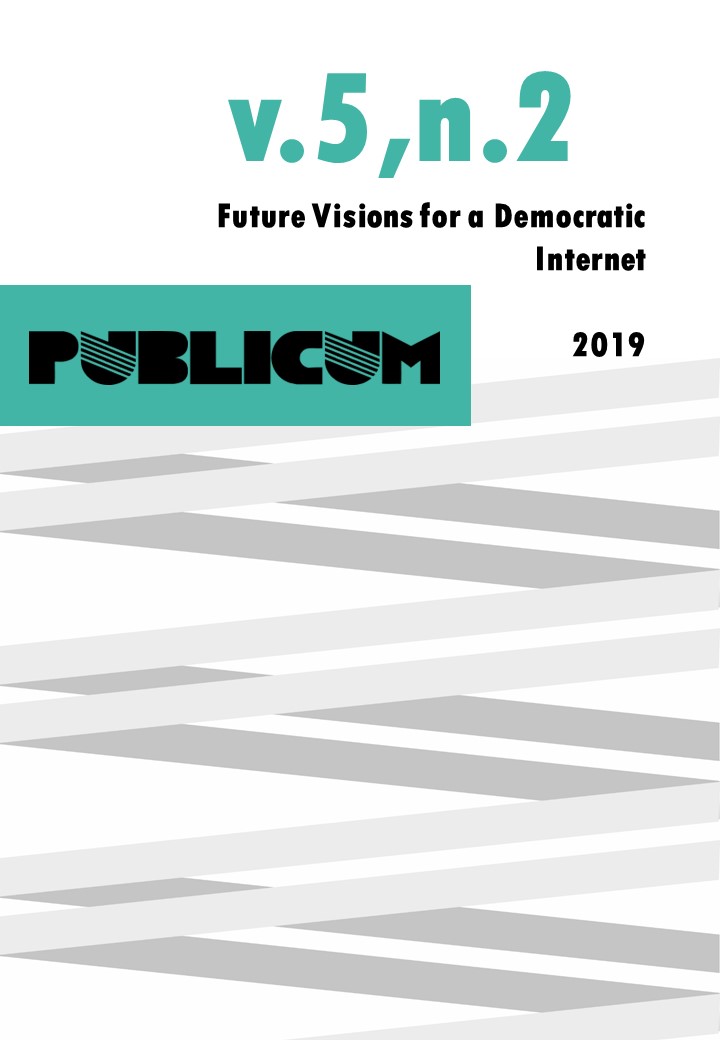Fake News, Free Elections, and Free Expression: Balancing Fundamental Rights in Irish Policy Responses to Disinformation Online | Fake news, eleições livres e liberdade de expressão: equilibrando direitos fundamentais em políticas públicas irlandesas para desinformação online
DOI:
https://doi.org/10.12957/publicum.2019.47210Keywords:
Democracy, Fake News, Human Rights, Free Expression, Free Elections.. | Democracia, Fake news, Direitos Humanos, Liberdade de Expressão, Eleições Livres..Abstract
Abstract: This paper considers the widely discussed problem of fake news in democracy and posits how Irish regulatory solutions should proceed in light of requisite human rights considerations. Firstly, the conceptual problems associated with fake news are examined, including the qualitative variation and harmful use of the term. The existing Irish and European legal framework is analysed, followed by analysis of European Court of Human Rights (ECtHR) case law. In many instances, the Court has attempted to balance the right of free elections under Article 3 of Protocol 1 with the right to free expression under Article 10 of the European Convention on Human Rights (ECHR). In light of factors that shape the Court in balancing these interrelated fundamental rights, it is argued that policy initiatives to tackle disinformation online should limit interferences with Article 10. Ultimately, initial measures are suggested for stakeholders to adopt, including the proposed Electoral Commission.
Resumo: Este artigo considera o problema amplamente discutido das fake news em democracias e propõe como as soluções regulatórias irlandesas devem proceder à luz das considerações necessárias sobre direitos humanos. Em primeiro lugar, examinam-se os problemas conceituais associados às fake news, incluindo a variação qualitativa e usos prejudiciais do termo. Em seguida, foi abordado o atual quadro jurídico irlandês e europeu, seguido de uma análise da jurisprudência do Tribunal Europeu de Direitos Humanos (TEDH). Em muitos casos, a Corte tentou equilibrar o direito de eleições livres nos termos do artigo 3º do Protocolo 1 com o direito à liberdade de expressão nos termos do artigo 10º da Convenção Europeia dos Direitos do Homem (CEDH). À luz dos fatores que guiam a Corte no equilíbrio destes direitos fundamentais interrelacionados, defende-se que as iniciativas políticas para combater a desinformação online devem limitar interferências no artigo 10. Em última análise, são sugeridas medidas iniciais para adoção institucional, incluindo a proposta de Comissão Eleitoral.
Downloads
Published
How to Cite
Issue
Section
License
The author(s) of the paper declare(s) to know and agree to the following rules:
1) The author(s) undertook the work presented to the journal, being entirely responsible for the ideas and concepts therein transmitted, which do not necessarily correspond to the point of view of Publicum’s Editors.
2) The ethical principles alluded to in the evaluation policy of the journal [RDN1] were met in the conduction of the work presented to submission.
3) The author(s) assume(s) authorship and responsibility for their work, declaring that it does not infringe any third party intellectual property rights.
4) The author(s) take(s) full responsibility for moral or patrimonial damages that the distribution of the work may generate to third parties.
5) The author(s) grant(s) the journal the rights to reproduce, edit and first publish the paper in any media – in particular in digital form – in an electronic archive on the Internet.
6) The author(s) confer(s) the right to the editors to modify the text submitted, without prejudice of its contents, when necessary to standardize the presentation of the works and to meet the norms of the journals’ own edition.
7) The author(s) agree(s) to the final form of the paper approved by the journal.
8) The author(s) authorize(s) the disclosure of the paper in the channels of communication of the Faculty of Law of UERJ.
9) The author(s) agree(s) with the reproduction of short extracts from the paper in other UERJ publications.
10) The author(s) recognize(s) that, through the abovementioned assignment and authorizations, he/she/they will not receive payment under any modality, meaning these will have the nature of scientific collaboration.
11) The author(s) is(are) aware that publication of the work may be refused if it is not considered appropriate, for any reason, whatsoever, and such refusal does not create responsibility and/or burdens of any kind to the journal or UERJ.
[RDN1]Ver COPE.

Publicum está licenciado com uma Licença Creative Commons Atribuição-NãoComercial 4.0 Internacional.

